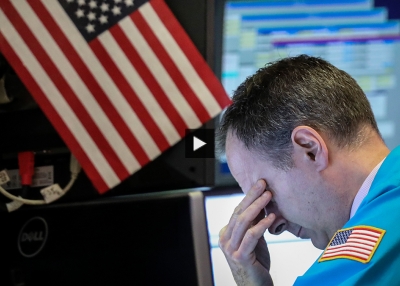Trade in Trouble: How the Asia Pacific Can Step Up and Lead Reforms
ASPI Issue Paper
ASPI Vice President Wendy Cutler discusses the report’s findings with a panel of experts at the Embassy of Australia on May 30, 2019.
The U.S.-China trade dispute has dominated headlines over the past year, disrupting trade and investment flows and increasing uncertainty at a time when the global economy is already facing headwinds. The conflict has left many countries in the Asia Pacific feeling caught in the crossfire seeking to navigate the tensions without alienating either country. While the World Trade Organization (WTO) would ideally help reduce the frictions, it has not been up to the task. The paralysis at the WTO points to a deeper problem: it’s inability to keep up with the pace of change or address the challenges of new developments in advanced technologies and the digital economy. Simply put, the trade regime is in trouble and in need of reform.
At this dynamic and uncertain time in trade, the Asia Society Policy Institute (ASPI) convened a group of leading trade experts and former trade officials from across the Asia Pacific, led by ASPI Vice President Wendy Cutler. In this issue paper, the authors examine the major developments in the international trading system, including the U.S.-China trade dispute, FTA activity in the Asia Pacific, and efforts to reform the WTO. In this challenging environment, the authors find that the Asia Pacific is uniquely well-positioned to lead reforms to get the system back on track.
This paper is the latest product of the ASPI initiative, “Building a High Standard and Inclusive Asia-Pacific Trade Architecture.” It builds on the work of two previous reports published in March 2017 and January 2018.
About the Authors
Wendy Cutler is Vice President of the Asia Society Policy Institute. She served for nearly three decades as a diplomat and negotiator in the Office of the U.S. Trade Representative, most recently as Acting Deputy U.S. Trade Representative.
Peter Grey was formerly Australian Ambassador to Japan, the European Union, the WTO, and APEC as well as being Chief Trade Negotiator. His current roles include Chairman of MLC Ltd., Co-Chair of the Japan Business Group of Corrs Chambers Westgarth, and Senior Advisor, International of Link Group.
Kim Jong-Hoon served as South Korea’s Minister for Trade and was the Chief Negotiator of the Korea-U.S. Free Trade Agreement. A career diplomat, Kim has over 38 years of experience in foreign service and trade issues.
Mari Pangestu served as Indonesia’s Minister of Trade, representing Indonesia in multilateral, regional, and bilateral trade negotiations. She is currently Professor of International Economics at the University of Indonesia.
Yoichi Suzuki is the former Japanese Ambassador to Singapore and France and has a long experience in international trade negotiations, including serving as Japan’s Chief Negotiator for the recently concluded Japan-EU Economic Partnership Agreement (EPA).
Tu Xinquan is the Dean of the China Institute for WTO Studies at the University of International Business and Economics in Beijing, China. His research covers the WTO, Chinese trade policy, and U.S.-China trade relations.
